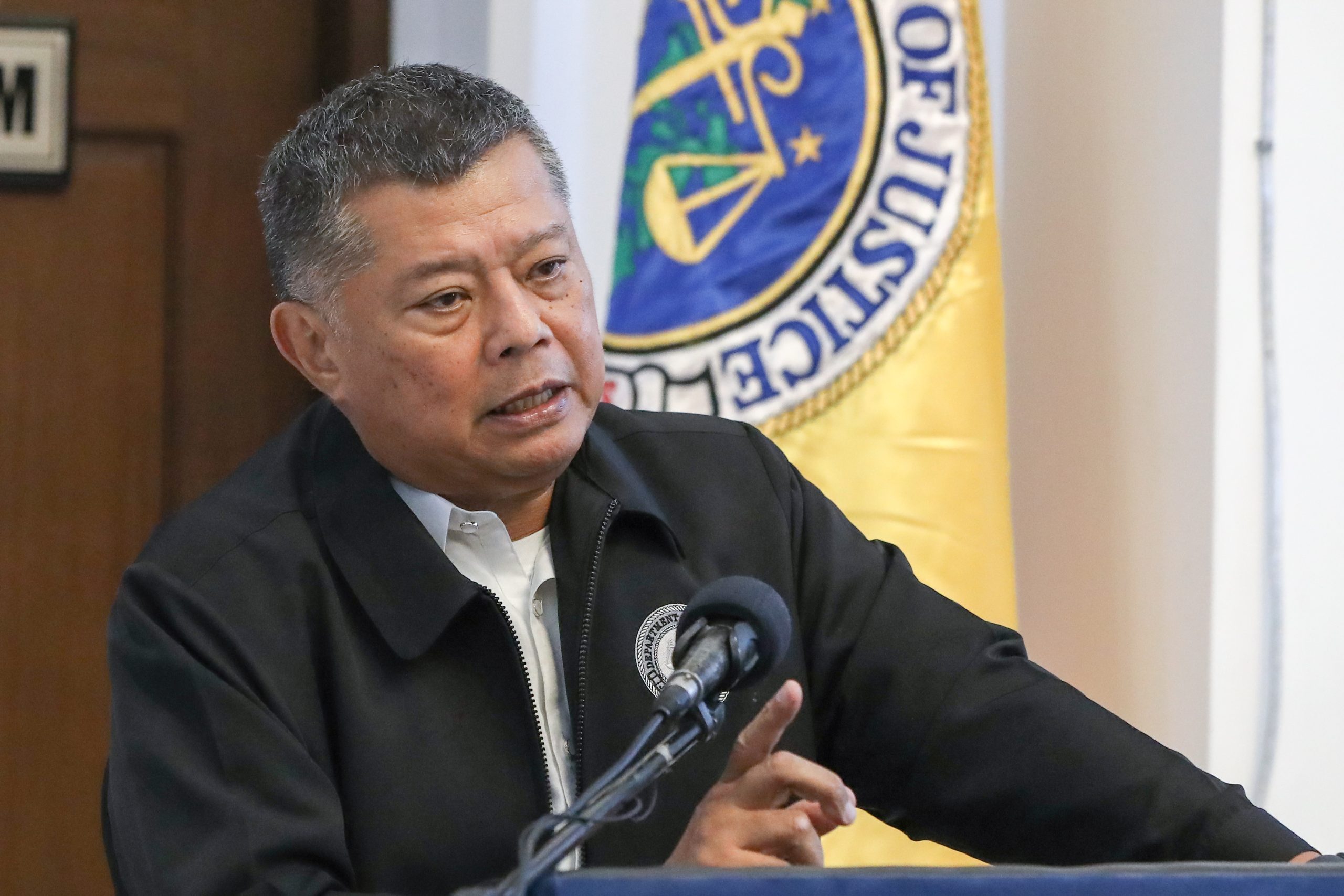News
DOJ greenlights legality of US-RP pact on peaceful use of nukes

Justice Secretary Jesus Crispin Remulla. (PNA photo by Yancy Lim)
MANILA – The agreement between the Philippine government and the United States on the peaceful use of nuclear energy is subject to national laws and is not in conflict with the constitution, the Department of Justice (DOJ) said in a legal opinion issued to the Department of Foreign Affairs (DFA).
DOJ Opinion No. 18 s. 2024 for DFA Office of American Affairs Assistant Secretary Jose Victor Chan-Gonzaga, states that the “Agreement for Cooperation between the Government of the Republic of the Philippines and the Government of the USA concerning Peaceful Uses of Nuclear Energy,” otherwise known as the 123 Agreement, does not preclude the application of national laws of the Philippines.
Department of Energy (DOE) Secretary Raphael Lotilla and US Secretary of State Antony Blinken signed the agreement in San Francisco, California in November 2023 on the sidelines of the Asia Pacific Economic Partnership (APEC) Summit.
The DOE said the deal “will allow the transfer of information, nuclear material, equipment, and components directly between the Philippines and the US or through persons authorized by their respective authorities to engage in transfer activities.”
It also provides the legal framework for potential nuclear power projects with US providers.
The DOJ said the implementation of the 123 Agreement can be covered by existing Republic Acts (RAs) including the Atomic Energy Regulatory and Liability Act of 1968 (RA 5207), Strategic Trade Management Act of 2015 (RA 10697) and Anti-Terrorism Act of 2020 (RA 11479).
“The provisions of the 123 Agreement do not conflict with both existing Philippine legislation and related bills pending before Congress,” DOJ Secretary Jesus Remulla said in the opinion.
Remulla added that “it is also significant to note that the 123 Agreement is consistent with the state policy against nuclear weapons (under the constitution).”
The agreement itself, the DOJ noted, provides that nuclear material, equipment and components and those produced from it, shall not be used for any nuclear explosive device, for research on or development of any nuclear explosive device, or for any military purpose.
“It is clear that this bilateral accord does not preclude the application of the national laws of the parties, especially of the Philippines, but rather gives way to their enforcement instead,” the DOJ said.





















